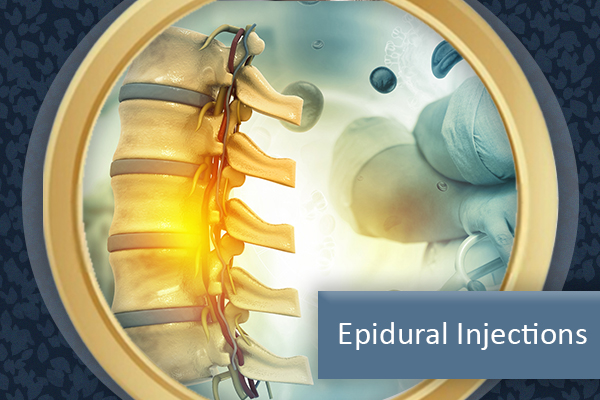A migraine is an intense type of headache that results in severe pain and can cause a variety of other symptoms.
 Migraines are one of the most common yet severe medical conditions and come with symptoms such as sensitivity to light and sound, nausea, and vomiting.
Migraines are one of the most common yet severe medical conditions and come with symptoms such as sensitivity to light and sound, nausea, and vomiting.
Migraines can be identified by throbbing and tension that brings with it sensitivity to any type of stimuli. You may also notice warning signs before these intense headaches such as flashes of light in your vision or other sensory triggers prior to onset.
Migraines are not simply headaches, they are much more severe and have similar yet distinct causes and symptoms from normal headaches.
Causes of Migraines
Migraines can be caused by constant stress, lack of a balanced diet, or blood flow issues caused by other conditions such as diabetes. Migraines are mainly caused by excess tension in blood vessels in the brain similar to tension headaches, but with the difference being the extreme severity and additional symptoms such as sensitivity and sickness due to intense pain. Migraines always have associated triggers that cause them, some of which include:
Emotional Triggers
Experiencing an excess of stress, anxiety, or shock can trigger migraines in those who are sensitive.
Physical Causes
Not getting sufficient amounts of sleep and experiencing shoulder and neck tension and pain have been shown to lead to an increased risk of migraines. In addition, low blood sugar and por dietary conditions also lead to a higher susceptibility.
Medications
Certain medications such as sleeping pills, hormone replacement pills, and also contraceptive pills can increase the sensitivity to experiencing migraines.
Environmental Triggers
Sensory cues form the environment such as flashes of light, sudden loud sounds, and even strong smells can set off migraines.
Treatment Options
 There are several treatment options for migraines depending on the symptoms, intensity, and frequency of occurrence.
There are several treatment options for migraines depending on the symptoms, intensity, and frequency of occurrence.
Migraines that occur rarely and do not occur by sensory triggers are considered more mild cases and can be treated more effectively. In these cases preventative medications can be more effective and help to curb symptoms and severity before they progress. Types of medications that are often prescribed as preventative medication include antidepressants, pain relievers, and anti-seizure drugs.
If your migraines are more commonly experienced and have sensory triggers, you may benefit more from taking pain medications immediately when symptoms begin. Medications that contain acetaminophen, aspirin, and caffeine are normally tailored specifically for migraines. These can be found in some over the counter medications as well as prescription drugs. If taken too often, these medications can lead to ulcers, gastrointestinal bleeding, and cause medication-overuse headaches.
Triptans are also an effective medication for thwarting the severe pain experienced during migraines. These treatments work by constricting blood vessels and blocking pain receptors and pathways in the brain. They are one of the most safe and effective ways to treat severe migraines.
If you are experiencing mild or severe migraine symptoms, try to lower stress and physical exertion and get plenty of rest to more effectively combat symptoms. Talk to your doctor and receive an evaluation in order to determine the best plan of action to address your specific case of migraines more effectively.
Common Questions about Migraine Treatment
What is a migraine?
A migraine is a severe headache that feels like a throbbing pain on one side of the head. Migraines are much more severe with similar yet distinct symptoms, such as sensitivity to light and sound, nausea, and vomiting.
Why is migraine treatment necessary?
Migraines can impact people’s work, family, and social lives and make it difficult for them to do what they enjoy. Migraine treatment aims to stop symptoms and prevent future attacks, so you can enjoy your life more and improve your quality of life.
At All-Pro Orthopedics & Sports Medicine in Florida, we provide different migraine treatment options depending on the type and severity of your migraine.
What are the types of migraine?
There are different types of migraine. Our Florida locations can help you with any type of migraines, such as:
- Migraine with aura – Characterized by flashing lights or other warning signs just before the migraine begins
- Migraine without aura – Most typical type of migraine, which occurs without a specific warning sign before the migraine strikes
- Silent migraine – Characterized by an aura and other migraine symptoms but without headache occurring.
What are the usual causes of a migraine?
As with tension headaches, migraines are generally caused by excess tension in blood vessels in the brain, but with the additional symptoms of sensitivity and sickness caused by intense pain.
The most common triggers of migraines in adults include:
- Emotional triggers
- Physical causes
- Medications
- Environmental triggers
What are some options for migraine treatment?
Migraines can be treated in several ways depending on their symptoms, intensity, and frequency.
- Preventive medications for mild cases: antidepressants, pain relievers, and anti-seizure drugs
- Over-the-counter and prescription drugs for more commonly experienced migraines and sensory triggers: acetaminophen, aspirin, caffeine, and other prescription drugs
- In the case of severe migraines, triptans are effective medications
- Lower your stress levels and physical exertion
- Get plenty of rest
How do we choose the best migraine treatment plan?
Here at All-Pro Orthopedics & Sports Medicine in Florida, we evaluate each patient individually to determine the best plan of action to address the specific case of migraines more effectively. We consider the intensity, duration, and type of migraines before creating a plan customized for our patients. We also suggest activities to help prevent migraines and best impact your lifestyle.














